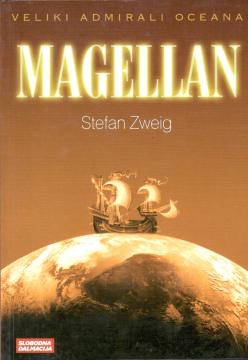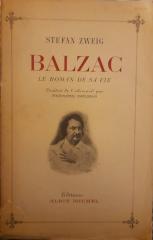
Magellan
Stefan Zweig's book "Magellan", published in 1938, is a biographical novel that follows the life and exploits of the Portuguese navigator Ferdinand Magellan, the first man to organize an expedition to circumnavigate the world (1519–1522).
Zweig, a master of psychological prose, portrays Magellan as a visionary obsessed with finding a western route to the Moluccas (Spice Islands). The work begins with a description of Magellan’s humble origins and his service in the Portuguese royal court, where he develops the idea of sailing west from America. After a conflict with the Portuguese king, Magellan transfers to the service of Spain, where he receives the support of Charles V for his expedition.
Zweig describes in detail the preparations, challenges, and dramatic moments of the voyage: from the mutinies of the crew, to the extreme conditions at sea, to the discovery of the strait that now bears Magellan’s name. Although Magellan did not survive the voyage—he was killed in 1521 in the Philippines—his expedition, completed by Juan Sebastián Elcano, proved that the Earth was round.
Zweig highlights Magellan’s unwavering will, but also his internal conflicts, portraying him as a tragic hero who sacrificed everything for his vision. Written in an elegant, almost novelistic style, the novel combines historical facts with psychological insights, making Magellan a symbol of human perseverance.
No copies available
The last copy was sold recently.





